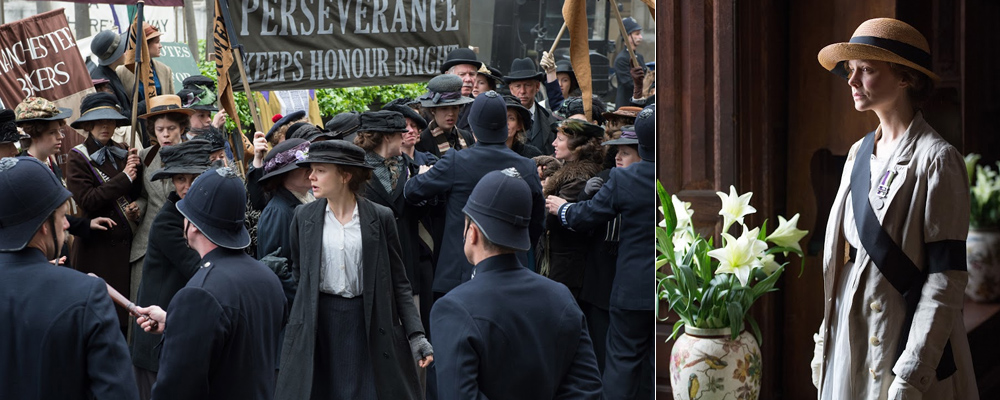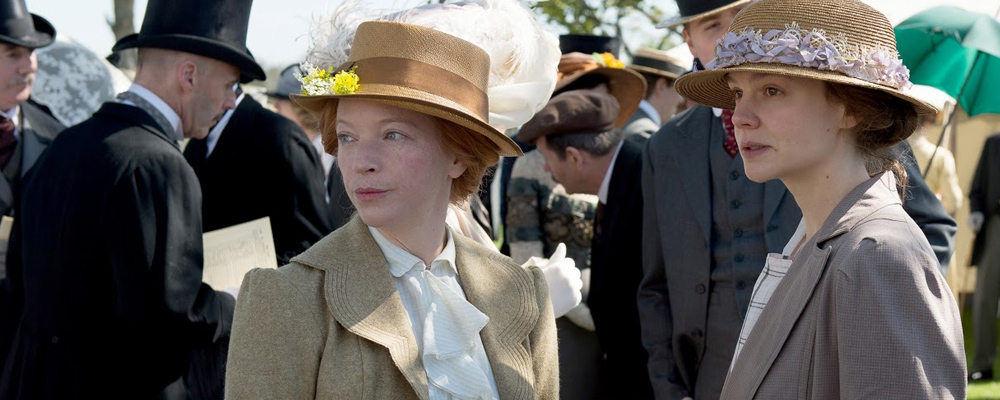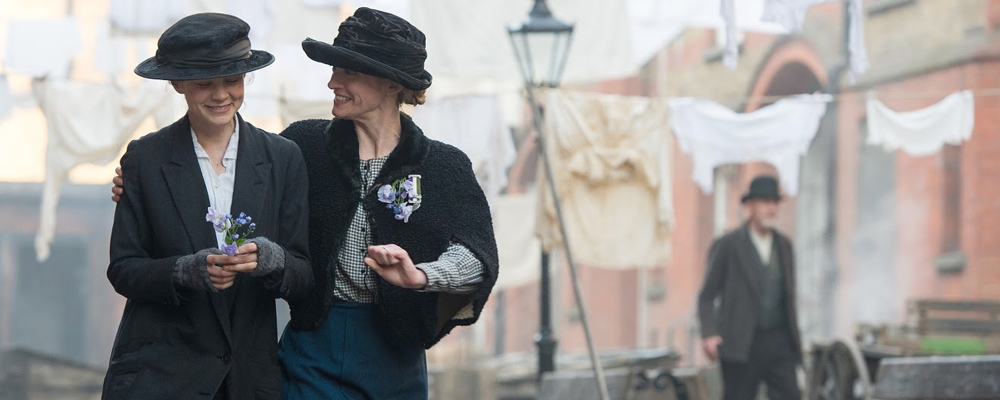Carey Mulligan Becomes Foot Soldier for Women’s Rights in British Drama ‘Suffragette’
Sandra Miska
The British suffragette movement is explored in the inspiring period drama “Suffragette.” Set in 1912-1913, the film portrays a changing world through the eyes of fictional character, laundress Maud Watts (Carey Mulligan). The daughter of a laundress herself, Maud grew up with few options and has been working in laundry since the age of seven. Now 24, she lives a simple life with her husband Sonny (Ben Whishaw) and their little boy George (Adam Michael Dodd).
It is during a routine work errand that Maud becomes aware of the growing discontentment of her fellow women. A suffragette throws a brick through a store window, and mayhem ensues. After 50 years of peacefully working for voting rights, suffragette leader Emmeline Pankhurst (Meryl Streep) is now advocating for more drastic measures. The fight comes closer to home for Maud when her co-worker Violet (Anne-Marie Duff) invites her to hear her speak in front of politician David Lloyd George (Adrian Schiller). After Violet is unable to speak, it falls on Maud to take her place, and for the first time she is forced to examine her own life, in a public way.
Another “foot soldier” for the cause who crosses Maud’s path is pharmacist Edith Ellyn (Helen Bonham Carter), whom she goes to for medicine for George. Unlike most of the other women, Edith has a husband, Hugh (Finbar Lynch), who is supportive of her activism, and she hosts weekly meetings in their pharmacy. It is Edith who tells Maud that it is “deeds, not words” that will earn women the vote, something Maud soon learns to take to heart.
After parliament fails to pass a women’s suffrage bill and she is caught up in a riot, Maud is sent to jail along with others, many who have been locked up several times, including Emily Wilding Davison (Natalie Press). She is soon turned out by Sonny, who refuses to let her see their son, the law being on his side. Even after this, Maud refuses to call herself a suffragette. It’s not until a situation at work in which she stands up to her boss, Mr. Taylor (Geoff Bell), who has been sexual abusing her. He has moved on to Violet’s teen daughter Maggie (Grace Stottor), and Maud refuses to stand for it. A turning point comes after police inspector Steed (Brendan Gleeson) offers her leniency in exchange for her spying on her friends.
Director Sarah Gavron and Abi Morgan do an excellent job of illustrating how unequally women were treated a hundred years ago, from the wealthiest to the poorest. Romola Garai, a versatile actress who has appeared in a number of period films, plays Alice Haughton, a wealthy married woman whose access to her own money is restricted by her husband. The point is driven home about the women’s second-class status when Sonny makes a heartbreaking decision about George without consulting Maud.
Although Streep only appears in one scene, it is a powerful one. The film doesn’t wrap up neatly, as the efforts of the suffragettes didn’t fully come to fruition until 1928. Instead, “Suffragette” ends with the an act of sacrifice on the part of Wilding Davis, an event that would’ve perhaps had more of an impact if her character had been more developed.
An epilogue reminds viewers that there are still parts of the world where women have yet to receive the vote, which is sobering. Overall, “Suffragette” is an inspiring story that shows what ordinary people can do to change the government, a lesson that’s important today more than ever.
“Suffragette” opens Oct. 23 in select theaters.



